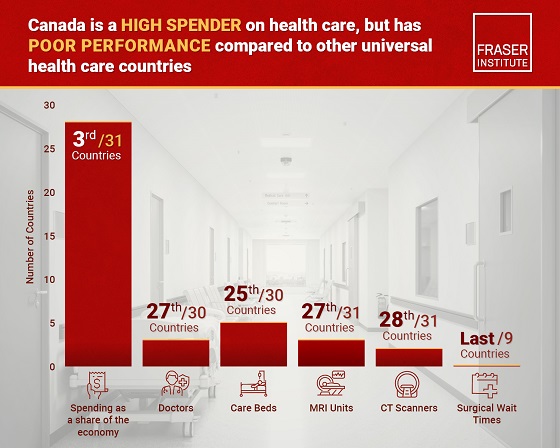Business
Canada drops almost all retaliatory tariffs on U.S.

 MxM News
MxM News
Quick Hit:
Canada has suspended nearly all of its retaliatory tariffs on U.S. products, easing inflation concerns and improving its economic outlook, according to Oxford Economics. Prime Minister Mark Carney’s new approach is aimed at protecting Canadian growth while avoiding a prolonged trade war.
Key Details:
- Canada’s effective tariff rate on U.S. goods is now “nearly zero” after broad exemptions were announced.
- Retaliatory duties remain on select U.S. products like orange juice, alcohol, coffee, clothing, and cosmetics.
- Oxford Economics upgraded Canada’s 2025 growth forecast to 0.9% despite predicting a mild recession.
Diving Deeper:
Canada’s government, under Prime Minister Mark Carney, has rolled back most of its retaliatory tariffs on U.S. goods, according to a new report from Oxford Economics. The decision comes after months of escalating trade tensions that began with the Trump administration’s tariffs earlier this year. In response, Canada initially slapped 25% import taxes on approximately C$60 billion ($43 billion) worth of U.S. goods and imposed additional levies on American automobiles.
However, Carney’s administration has since introduced a strategic six-month exemption for a wide range of U.S. products crucial to Canadian industries. Items used in manufacturing, processing, food and beverage packaging, health care, public safety, and national security are now largely exempt. Automakers, including major employers like General Motors Co., are also benefiting, as some U.S.-made vehicles can now enter Canada tariff-free.
Oxford Economics noted that with these exemptions, the real tariff-rate hike against U.S. goods is “nearly zero,” a move it called a “very strategic approach” to avoid harming Canada’s domestic economy. Tony Stillo, Oxford’s director of Canada economics, praised Carney’s leadership for prioritizing economic stability over political retaliation.
Still, not all U.S. goods escaped the tariffs. Products like orange juice, alcohol, coffee, clothing, and cosmetics remain subject to higher import taxes.
Carney, who recently won election by promising to manage the U.S.-Canada trade relationship effectively, has emphasized the need to strengthen Canada’s domestic economy. His government is planning increased spending on infrastructure and housing while pursuing new trade and security partnerships outside of the U.S. Unlike his predecessor, Justin Trudeau, Carney has rejected a strict “dollar for dollar” retaliation policy.
Despite these moves, Oxford Economics still forecasts a mild recession for Canada this year. However, it raised its growth expectations, projecting 0.9% growth in 2025 and 0.3% in 2026. Inflation is expected to briefly spike to 3% in 2026 before stabilizing.
Business
Canada Revenue Agency has found a way to hit “Worse Than Rock Bottom”

From Conservative Part Communications
Last month, Carney’s Minister responsible for the Canada Revenue Agency (CRA) debuted their new slogan: “It can’t get much worse than it is now.” Today, the Auditor General reported that under the Liberals, it has.
Over the 2024/25 period, only 18 per cent of callers were able to reach a CRA agent within 15 minutes, a far cry from the target of 65 per cent of callers. In June, the numbers plunged to just 5 per cent of callers able to get through within the service standard of 15 minutes.
The average wait time took over half an hour, double what it was the year prior. And that was if you were even given the option of getting help. Nearly nine million calls were “deflected” by an automated voice telling Canadians to figure it out themselves, with no option to speak with an agent.
Wait times are so bad that over 7.6 million calls were disconnected before callers were able to reach an agent or be provided automated service. As wait times continue to get worse and worse, Canadians have just given up, evidenced by 2.4 million more abandoned calls over the previous year.
Even when Canadians manage to get hold of an agent, employees regularly fail to provide correct information about personal and business taxes. Auditors found the call centre gave incorrect information 83 per cent of the time when asked general individual tax questions.
Non-specific questions about benefits, including about eligibility, were wrong 44 per cent of the time. Meanwhile, the CRA’s automated chatbot “Charlie”, meant to relieve the call centre, answered only two of six tax-related questions correctly.
“How is it that an organization so important to the smooth functioning of the country is failing to serve Canadians and, as the Auditor General notes, places greater importance on adhering to shift schedules and breaks than on the accuracy and completeness of the information provided?” asked Gérard Deltell, Conservative Shadow Minister for Revenue.
It’s no surprise that complaints about the CRA’s contact centre increased 145 per cent from 2021/22 to 2024/25. Despite this, the Liberals announced they will begin auto-filing taxes for 5.5 million Canadians, automatically enrolling people in benefits the CRA is regularly unable to provide accurate information about.
Worse of all, the cost of the CRA’s call centre has ballooned from $50 million over 10 years in 2015 to $190 million. The total cost is projected to continue rising to $214 million over the next two years, a more than 320 per cent increase from the original contracted amount.
Meanwhile, Auditors found “there was no process documented or followed to ensure that amounts invoiced … were accurate and reflected the services received,” and that there was “little evidence that invoice details were appropriately reviewed and approved by … the Canada Revenue Agency prior to issuing payment.”
The Liberals have delivered higher taxes and higher costs with worse service for Canadians. We deserve better than continued Liberal failures. Conservatives will continue holding Carney accountable and fight to cut taxes and waste so Canadians keep more of what they earn.
Business
Canada has fewer doctors, hospital beds, MRI machines—and longer wait times—than most other countries with universal health care

From the Fraser Institute
Despite a relatively high level of spending, Canada has significantly fewer doctors, hospital beds, MRI machines and CT scanners compared to other countries with universal health care, finds a new study released today by the Fraser Institute, an independent, non-partisan Canadian public policy think-tank.
“There’s a clear imbalance between the high cost of Canada’s health-care system and the actual care Canadians receive in return,” said Mackenzie Moir, senior policy
analyst at the Fraser Institute and author of Comparing Performance of Universal Health-Care Countries, 2025.
In 2023, the latest year of available comparable data, Canada spent more on health care (as a percentage of the economy/GDP, after adjusting for population age) than
most other high-income countries with universal health care (ranking 3rd out of 31 countries, which include the United Kingdom, Australia and the Netherlands).
And yet, Canada ranked 27th (of 30 countries) for the availability of doctors and 25th (of 30) for the availability of hospital beds.
In 2022, the latest year of diagnostic technology data, Canada ranked 27th (of 31 countries) for the availability of MRI machines and 28th (of 31) for CT scanners.
And in 2023, among the nine countries with universal health-care systems included in the Commonwealth Fund’s International Health Policy Survey, Canada ranked last for the percentage of patients able to make same- or next-day appointments when sick (22 per cent) and had the highest percentage of patients (58 per cent) who waited two months or more for non-emergency surgery. For comparison, the Netherlands had much higher rates of same- or next-day appointments (47 per cent) and much lower waits of two months or more for non-emergency surgery (20 per cent).
“To improve health care for Canadians, our policymakers should learn from other countries around the world with higher-performing universal health-care systems,”
said Nadeem Esmail, director of health policy at the Fraser Institute.
Comparing Performance of Universal Health Care Countries, 2025
- Of the 31 high-income universal health-care countries, Canada ranks among the highest spenders, but ranks poorly on both the availability of most resources and access to services.
- After adjustments for differences in the age of the population of these 31 countries, Canada ranked third highest for spending as a percentage of GDP in 2023 (the most recent year of comparable data).
- Across 13 indictors measured, the availability of medical resources and timely access to medical services in Canada was generally below that of the average OECD country.
- In 2023, Canada ranked 27th (of 30) for the relative availability of doctors and 25th (of 30) for hospital beds dedicated to physical care. In 2022, Canada ranked 27th (of 31) for the relative availability of Magnetic Resonance Im-aging (MRI) machines, and 28th (of 31) for CT scanners.
- Canada ranked last (or close to last) on three of four indicators of timeliness of care.
- Notably, among the nine countries for which comparable wait times measures are available, Canada ranked last for the percentage of patients reporting they were able to make a same- or next-day appointment when sick (22%).
- Canada also ranked eighth worst for the percentage of patients who waited more than one month to see a specialist (65%), and reported the highest percentage of patients (58%) who waited two months or more for non-emergency surgery.
- Clearly, there is an imbalance between what Canadians get in exchange for the money they spend on their health-care system.
Mackenzie Moir
Senior Policy Analyst, Fraser Institute
-

 Alberta2 days ago
Alberta2 days agoClick here to help choose Alberta’s new licence plate design
-

 National2 days ago
National2 days agoDemocracy Watch Renews Push for Independent Prosecutor in SNC-Lavalin Case
-

 Alberta2 days ago
Alberta2 days agoBusting five myths about the Alberta oil sands
-

 Frontier Centre for Public Policy2 days ago
Frontier Centre for Public Policy2 days agoOttawa Should Think Twice Before Taxing Churches
-

 Energy1 day ago
Energy1 day agoMinus Forty and the Myth of Easy Energy
-

 Health1 day ago
Health1 day agoNew report warns WHO health rules erode Canada’s democracy and Charter rights
-

 Business1 day ago
Business1 day agoUS government buys stakes in two Canadian mining companies
-

 City of Red Deer2 days ago
City of Red Deer2 days agoPlan Ahead: Voting May Take a Little Longer This Election Day






